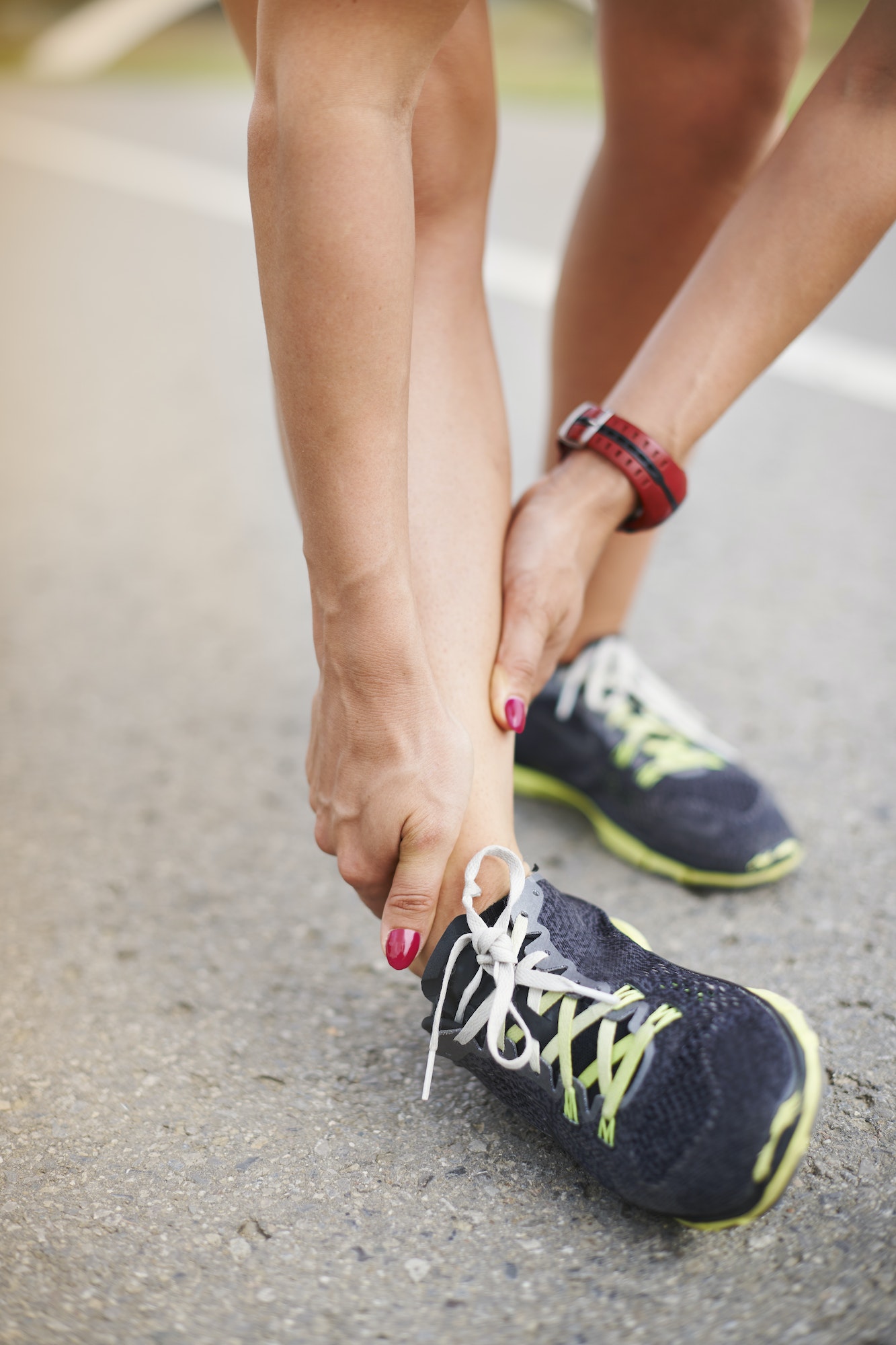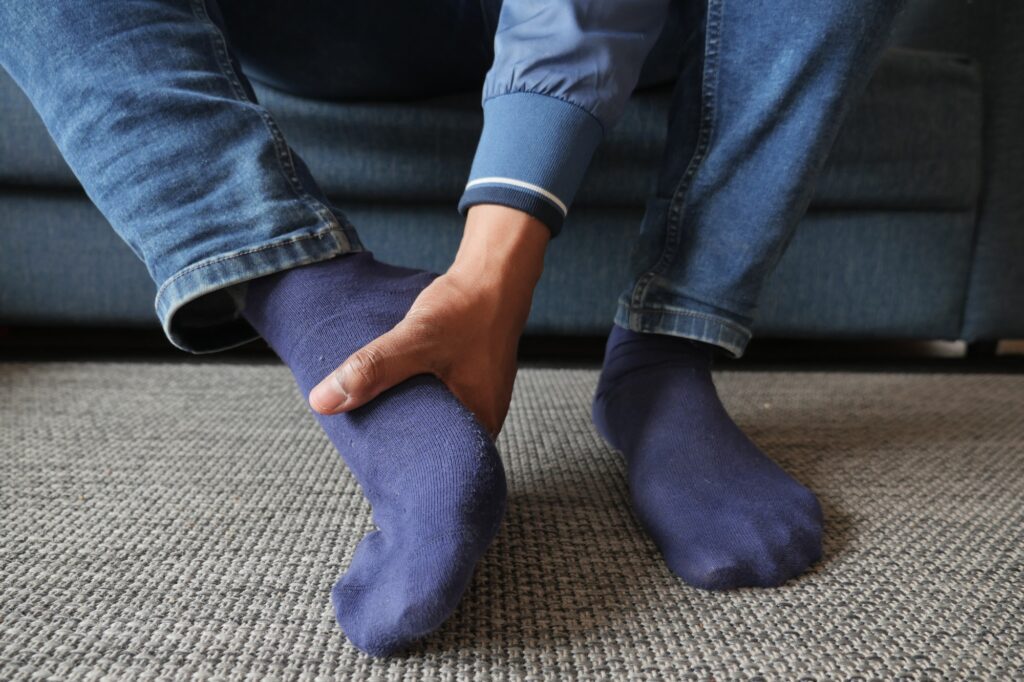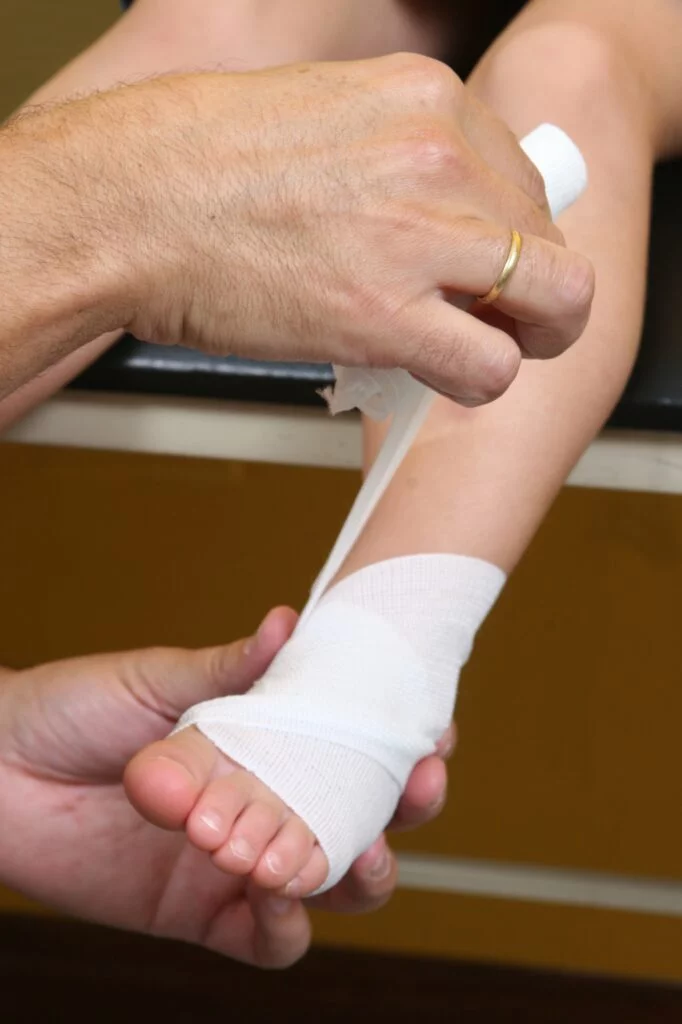Table of Contents
What is Peripheral Neuropathy?
Do you feel numbness or strange sensations in your feet? Do you wake at night with the feeling of burning or pins and needles in your feet? Do your feet get blisters or red areas that you can’t feel? These can be symptoms of peripheral neuropathy. Peripheral neuropathy is a disease of the nerves of the feet. It may make you unable to sense pain. Lack of pain makes you more likely to injure yourself without knowing it. But you can learn ways to protect your feet from injury.
When Nerves Are Diseased
Nerves in your feet carry signals to your brain. Your brain reads those signals and interprets them as sensations. When nerves in your feet are diseased, signals may never reach the brain. Or, signals may be confused. The result may be a lack of feeling in your feet or other symptoms of peripheral neuropathy.
Symptoms Mask Pain
Symptoms of peripheral neuropathy begin in your toes. The symptoms slowly spread up your feet and legs as more nerve is affected. These symptoms may mask pain. Without pain, you may not notice a cut or even a bone fracture. Cuts may become infected. Fractures may heal poorly and lead to foot deformity.
Physical Exam
Your doctor will ask about your symptoms and check your reflexes. He or she will also check how well you sense pressure, vibration, and temperature. To do this, some simple tools will be touched against your feet. A monofilament checks how well you feel pressure. A tuning fork checks your response to vibration.
Regular Foot Care
If you have foot numbness, you may not notice cutting yourself while trimming your nails. To prevent problems, your doctor may ask you to visit for nail and callus trimming. See your doctor for foot care as often as suggested. Your doctor can safely trim your nails during an office visit.
Protecting Your Feet
Learn ways to protect your feet. Check your feet daily for wounds you may not have felt. Avoid burns by testing bath water with your elbow before stepping in. Also, to prevent injury, always wear shoes.
Check Your Feet Daily
Catch problems early by checking your feet every day for changes. Look at the top and bottom of your feet, your heels, and between your toes. It may help to use a mirror. If this is hard, ask someone to check for you. Call your doctor if you notice a wound, ingrown nail, or any changes in your feet. This includes increased heat, swelling, and redness.
Wear Proper Footwear
Always wear shoes and socks, even indoors. Ask your doctor how to choose the right shoe. After buying shoes, bring them to your doctor to be checked for fit. Take new shoes off every hour or so to check for red pressure areas on your feet. Each time you put on your shoes, use your fingers first to feel inside for foreign objects.
Working With Your Doctor
People who have diabetes are more likely to get peripheral neuropathy. If you have diabetes, controlling your blood sugar is the best way to curb nerve damage. Your doctor may ask you to check your blood sugar daily. Ask your doctor to use the space below to let you know what else you can do.
- Apply this cream to your feet:
- Take this medication by mouth:
- Go to your doctor for regular nail and callus trimming.



